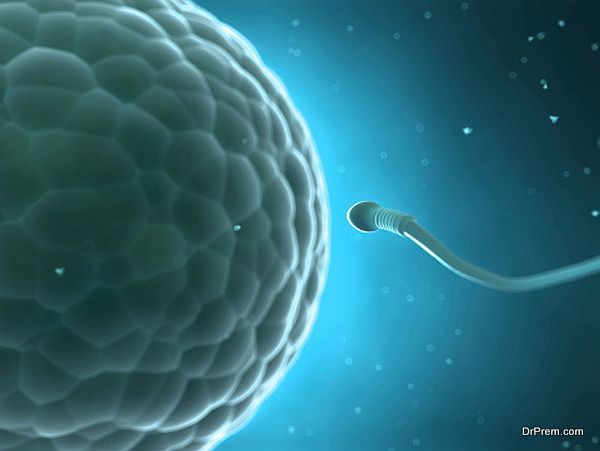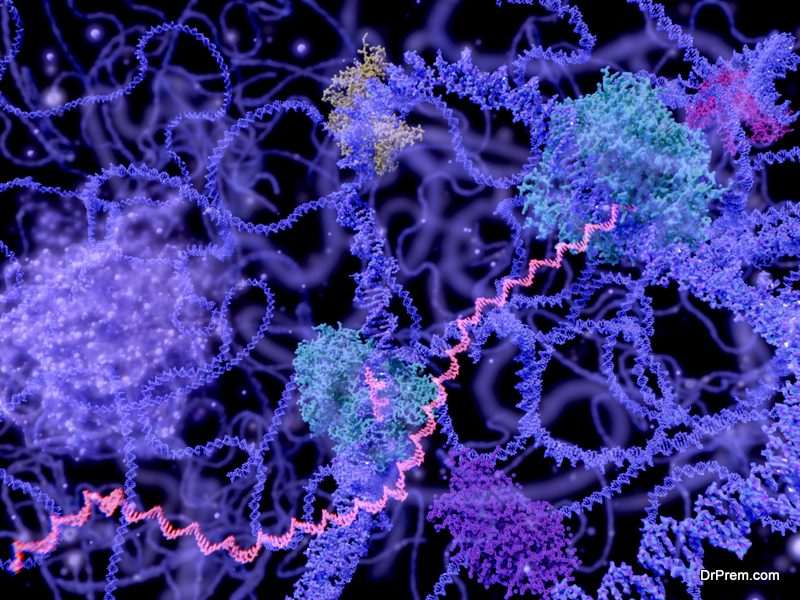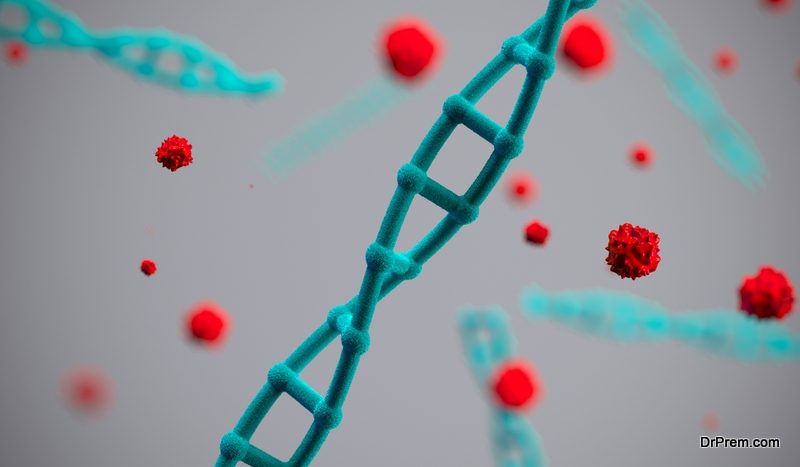Research conducted since the last decade give an indication that stress can be passed on from parent to child. Hereditary induced stress may not be an oft-discussed subject. In view of rising stress in global population, researchers are putting serious efforts to link the cause and effect relationship which can help us in effective stress management for the benefit of us and posterity.
Stress during pregnancy affects the baby’s health. But what if the woman has faced stress long before pregnancy? It may seem quite impossible for this stress to be passed on to the child since pre-pregnancy stress is not related to the DNA of mother.
But somehow there exists a correlation between the two which may even pass on to their grandchildren. Children inheriting stress from father cannot be overruled. Children not only inherit characters but inherit experiences as well.
Studies indicate stress can be passed from parent to child:
 Children inheriting stress is not a new observation. The Holocaust survivors bear a testimony to it. Their children have a much higher than average chance of suffering from stress-induced psychiatric problems like post-traumatic stress disorder even if they are not exposed to that high level of stress. This probability of stress-inheritance is high even in their grandchildren.
Children inheriting stress is not a new observation. The Holocaust survivors bear a testimony to it. Their children have a much higher than average chance of suffering from stress-induced psychiatric problems like post-traumatic stress disorder even if they are not exposed to that high level of stress. This probability of stress-inheritance is high even in their grandchildren.
A similar effect has been observed among survivors of genocides in Cambodia, Rwanda, Nigeria, Armenia and former Yugoslavia where the children of survivors have shown marked psychopathological conditions.
Establishing the biological linkage of stress between the parents and offspring:
 Parenting is not always to be blamed for the abnormal psychological condition of the child. Hereditary induced stress could be established from a study conducted on rats published in the journal Biological Psychiatry few years ago. The stress is transferred from parent to child in a mysterious way. Our body produces a molecule in response to stress which gets encoded in a gene.
Parenting is not always to be blamed for the abnormal psychological condition of the child. Hereditary induced stress could be established from a study conducted on rats published in the journal Biological Psychiatry few years ago. The stress is transferred from parent to child in a mysterious way. Our body produces a molecule in response to stress which gets encoded in a gene.
Naturally, stressed females are likely to have a larger quantity of this molecular product compared to the non-stressed females. But surprisingly, this product was found to be in higher concentrations even in the eggs of stressed females.
Scientists have understood that ova not only pass DNA from the parent to child but also transfer other “soft” information via the molecule coded in the gene resulting in inheritance of stress by the offspring.
Father’s sperm can pick up stress messages and pass to the offspring:
 Overstressed would-be-dads need to be cautious. According to the recent finding, sperms can pick up parental experiences and pass it on to the offspring via a mysterious communication system through small packages of nucleic acid, proteins and lipids known as extracellular vesicles.
Overstressed would-be-dads need to be cautious. According to the recent finding, sperms can pick up parental experiences and pass it on to the offspring via a mysterious communication system through small packages of nucleic acid, proteins and lipids known as extracellular vesicles.
The study involved a series of experiments with mice to understand their physiological response to stress. The offspring of the mouse who hadn’t faced stress months before conception showed a different pattern of brain development than the offspring whose “father” who had faced a certain level of stress before.
Scientists were doubtful about the process of transmission of traumatic information to the fertilized embryo. It is quite impossible for the tightly-packed DNA nucleus in the sperm to respond to environmental changes.
They conceived of some other type of cell whose DNA can react to external environmental changes which could be relayed to the sperm during fertilization. A population of such cells supporting the growth of sperm cells was brought under focus.
They secrete extracellular vesicles, which act as the “agents” of information transfer. They fuse with sperm cells and transmit previous memories of stress to the fertilized embryo.
Children inheriting stress can be attributed to epigenetic inheritance:
 How stress is transferred from the parent to child can be explained by epigenetics. Researchers in a study observed that the offspring of mice traumatized earlier inherited signs of trauma for two generations, a trait which can be attributed to RNA.
How stress is transferred from the parent to child can be explained by epigenetics. Researchers in a study observed that the offspring of mice traumatized earlier inherited signs of trauma for two generations, a trait which can be attributed to RNA.
The expressions of microRNA were altered in mice with a previous exposure to trauma. These micromolecules function as small switches that can put on or off certain genes. These microRNA molecules found in higher quantities in the brain tissue (hippocampus) and sperm of the male mice somehow got imprinted in the embryos.
As a result, the offspring showed abnormal behavioral activities. Even if the offspring of traumatized mice did not carry microRNA in their sperm but they could transfer the abnormal behavior to the next progeny.
Role of parents in causing epigenetic inheritance:
 Environmental factors and lifestyle can chemically silence the genes which can pass from parent to child. Smoking, diet, famine, stressful childhood and psychiatric ailments can lead to epigenetic inheritance.
Environmental factors and lifestyle can chemically silence the genes which can pass from parent to child. Smoking, diet, famine, stressful childhood and psychiatric ailments can lead to epigenetic inheritance.
Scientists deny children inheriting stress in this manner. Previous studies show any genetic markings added in different phases of life get erased with the development of sperms and eggs and is totally absent in fertilized eggs.
However, this explanation was challenged by researchers of the University of Cambridge who discovered that a very small amount of methylated genes survived without being erased. Though it was found in 253 germ cells out of approximately 25,000 cells examined, the potentiality of transfer of gene markings from parent to child is there.
Inheriting anxiety from parents:
 This has also been proved by the researchers of the University of Wisconsin-Madison in a study conducted on Rhesus monkeys. They identified three areas of the brain strongly connected with each other that can be linked with anxious behavior.
This has also been proved by the researchers of the University of Wisconsin-Madison in a study conducted on Rhesus monkeys. They identified three areas of the brain strongly connected with each other that can be linked with anxious behavior.
To create a brain map, the team introduced a marker in the monkeys that accumulated in the regions of brain receiving the highest blood flow. The monkeys were exposed to situations mildly stressful for human children. A PET (Positron Emission Tomography) scan was carried out with monkeys to identify the marker concentration in the brain.
The findings were then compared to the physical reaction of monkeys when exposed to stressful condition – whether they displayed extreme or mild levels of anxiety. Next, the team tried to determine the elements of anxiety inherited from parents and those derived from the environment.
To assess the effect of anxiety on genes, the anxiety level of each monkey was examined and correlated with that expressed by their relatives. The regions of brain presumed to be inherited expressed the same anxiety pattern as that expressed by the markers in the brain. The team, however, concluded that there is a 30% likelihood of children inheriting anxiety from parents.
Short allele of serotonin-related gene can cause stress inheritance:
 Shyness in kids can be related with the interaction pattern of their stress-related gene while being brought up by stressed parents as observed in a study by the Child Development Authority, University of Maryland.
Shyness in kids can be related with the interaction pattern of their stress-related gene while being brought up by stressed parents as observed in a study by the Child Development Authority, University of Maryland.
This does not explain how environment affects the gene but it shows how this specific gene can respond to different environments. In the study, a specific serotonin-related gene was examined constituting 2 alleles which can be either short or long.
A specific protein produced by the short allele contributes to the predisposition to stress sensitivity of certain kinds. Children who have inherited the short allele only showed consistent shyness in their behavior when exposed to the stress of their mothers.
If a kid has two short alleles but his mother is not stressed, he will not show any sign of shyness. But once stress sets in his mother, the gene will display a strong relationship with his behavioral pattern.
However, further study and a better understanding of stress inheritance will help to improve diagnosis and treatments of psychological ailments suggesting ways of prevention. The family and societal environment also have an important role to play to restrict stress inheritance of the next generation.




